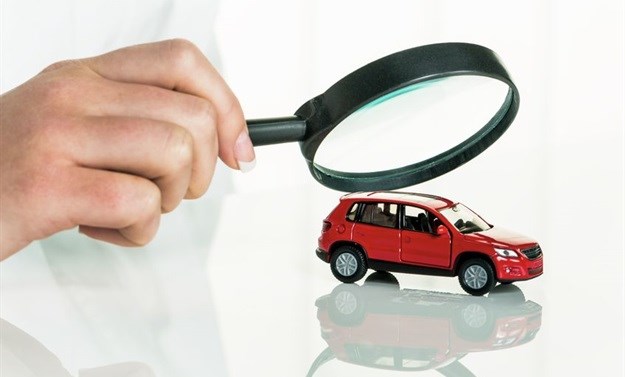Roads during the holidays are notoriously dangerous and extra precautions need to be taken.
"It's therefore essential to have a multi-check on your vehicle to identify potential hazards, and prevent additional damage before it happens, at least two weeks before you leave to go on holiday," explains Graham Craggs, spokesperson for Budget Insurance.
"This will give you time to fix anything that might be wrong with your car in good time. It's essential to keep your vehicle in peak operating condition as this will not only ensure your safety on the road but also reduce your overall motoring costs.
"Spending money now - even if it seems costly - will save you money, time and potential dangers in the future," says Craggs. "Yes, you can perform some of these checks yourself, but it is highly recommended that you take your car to a professional for an advanced check. Things like worn out wheel bearings, a damaged steering arm, a corroded mounting or loose linkage, if left unattended, could cause anything from an inconvenience to a major accident."
A road trip advance checklist must include:
Lights and electrical system
- Ensure that all bulbs on your vehicle are in working order to ensure that you can see, be seen and heard and clearly indicate your intentions.
- Make sure that headlamps are adjusted correctly - ensuring that light beams offer adequate viewing distance, but without being adjusted too far upwards, causing visibility problems for oncoming motorists.
Windows and wipers
- Check to make sure that all windows are in a good condition and that any cracks or chips are repaired.
- Make sure that wiper blades are performing well and making a clean sweep every time.
Wheels and tyres
- Ensure that all the wheels are securely fastened.
- Ensure that each tyre has adequate tread. The South African legal limit is 1mm of tread, but anything below 3mm limits the tyre's ability to function effectively.
- Make sure that your vehicle is equipped with a spare wheel in good condition, that you have the correct jack and other tools to remove a damaged wheel and tyre.
Brakes
- Check your vehicle's brake fluid level and top it up if necessary.
- Check that the handbrake fluid level is good and that the brake is working optimally.
- Ensure that all brake discs, drums and pads are in good condition; performing well and wearing evenly. Perform an emergency stop test to make double sure.
- Any uneven wear, strange noises or vibrations from the braking system should be investigated and fixed.
Suspension
- Make sure that your vehicle's shock absorbers and other suspension systems are keeping the tyres firmly on the ground.
- If your vehicle's ride quality is harder than it normally is. For instance rolling a lot when turning into corners or needs a longer distance to stop, then worn or damaged suspension parts like shocks or struts may need to be replaced.
Battery
- Test your vehicle's battery to make sure that it's delivering the correct charge and if necessary, the battery water is topped up.
- Have the alternator checked to make sure that it keeps the battery charged.
Belts and chains
- Check to make sure that all belts and chains connected to the cam, alternator, fan and other components are in a good condition. Broken belts and chains can cause major engine damage.
Cooling system
- Make sure that your vehicle's cooling system - especially the radiator and water pump - is functioning correctly.
- Also ensure that the radiator cap seals properly and that the coolant fluid is clean and topped up to the correct level.
Filters and fluids
- Make sure that all major filters - oil, air and fuel filters - are clean and functioning well.
- When you change the oil filter, make sure that you drain all old oil from your vehicle and replace it with new oil that matches the vehicle manufacturer's specifications.
- Make sure that all fluids are at their recommended levels.
- Inspect all oil, air and fuel systems (including hoses and pipes) for leaks.
- Make sure that all fuel and oil caps are securely fastened.
Exhaust system
- Give the exhaust system a good once over to check for any leaks.
- A damaged exhaust system won't only cause vehicle performance- and fuel consumption issues, but also poses a serious health risk.
Safety/warning equipment
- Check seatbelts and clips, as well as airbag settings (in some vehicles certain airbags can be disabled).
- Be sure to have a reflective triangle or flashlight handy to warn oncoming motorists when your car has broken down.
